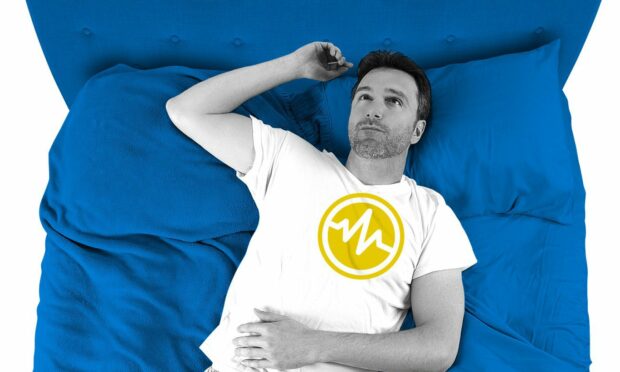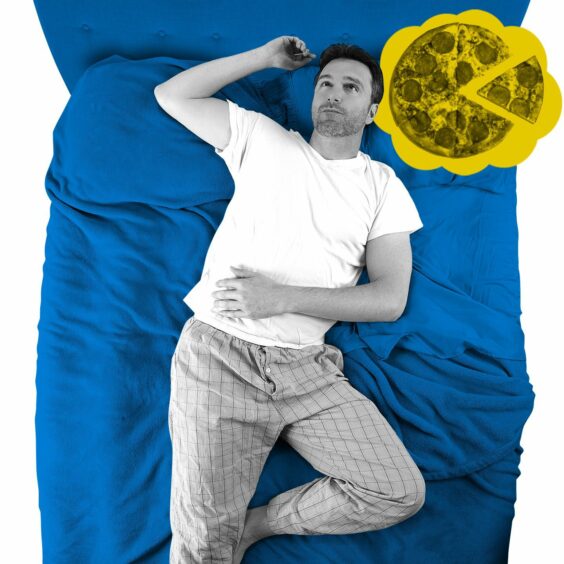We’ve all felt the effects of a sleepless night – lacking energy or feeling below par the next day. But do you know just how critical sleep is to your overall health? You might be surprised.
Sleep deprivation can lead to serious conditions such as diabetes, heart disease, mental health problems and obesity.
And it can affect everything from your eyesight to your digestion.
Outcomes of poor sleep include:
1. Brain changes
The prefrontal cortex helps us plan, make decisions, evaluate danger and manage our behaviour. It is most directly affected by lack of sleep so can lead to impaired brain function during the day.
2. Myokymia – eyelid twitching
Often caused by lack of sleep, fatigue or stress myokymia is not dangerous itself but can lead to dry eye conditions.
3. Poor concentration and memory
Our brains are very active during sleep and lots of new learning is hard-wired while we’re asleep. So lack of it leads to reduced mental performance.
Research has found 17 hours of continuously being awake affects performance in the same way as drinking two small glasses of wine.
4. Heart attack/stroke
Longer term, persistent sleep deprivation puts us at a higher risk of linked conditions such as heart attack and stroke.
5. Junk food cravings
Lack of sleep makes us crave foods rich in carbohydrates when we’re stressed, as they are more energy dense.
They bring a glucose boost, followed by an energy slump. This creates a cycle where we crave energy-dense food to give us another boost.
6. Immune system dysfunction
Our immune systems are complex and benefit from good sleep habits. Sleep deprivation may impair function – for example, how many colds people catch, as well as our ability to fight inflammation and even tumour growth.
7. Digestion
Sleep allows our digestive system to renew, repair and grow good gut bacteria. Without it gut balance can be affected leading to stomach pain, bloating and flare ups for those who suffer from conditions such as IBS.
8. Weight gain
Sleep deprivation decreases the levels of leptin in our bodies and increases the levels of ghrelin, making us feel hungrier.
9. Mood changes and depression
Our moods are one of the first indicators we may have a sleep problem. Sleep deprivation affects the part of our brains regulating emotions and can make us feel irritable, groggy and easily upset.
10. Blood pressure
Lack of sleep can increase our blood pressure, particularly in those who already have high blood pressure.
11. Overheating
Sleep is vital for our bodies to regulate our internal temperature. So, if you’re feeling hot, it can be your body overheating due to lack of good quality sleep.
As we get more tired, our brain begins to overheat and yawning begins – compensating for this thermoregulatory failure.
Dr Robin Smith is a consultant in respiratory medicine at Ninewells Hospital.
He set up NHS Tayside’s sleep service in 2004, providing education and support to people suffering from Obstructive Sleep Apnoea (OSA).
He says: “Sleep is absolutely critical to your wellbeing and physical health.
“Sleep deprivation or fragmentation has a major detrimental effect on many things.
“It’s not just your ability to function or how you feel during the day.
“It raises your sympathetic system. So your blood pressure goes up during the night. It can damage your small blood vessels so you’re more at risk of having a heart attack or stroke,” Dr Smith continues.
‘Nine times more likely to crash your car’
“It pushes your sugars up so if you have type 2 diabetes it can make that worse. Or it can provoke diabetes if you’re marginal.”
Dr Smith says: “You’re nine times more likely to crash your car if you have undiagnosed sleep apnoea.
“So it is a crucial treatment to give if you need it.”
- For help with sleep problems see your GP or look at NHS Tayside’s sleep advice. Sleep support for families with children 18 and under can be found at Sleep Scotland.













Conversation